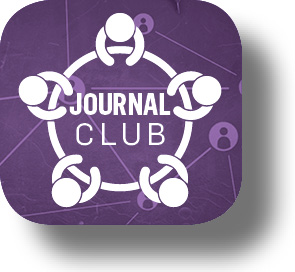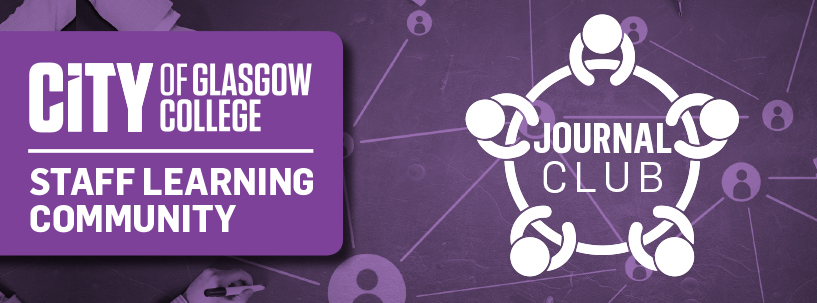Photo by Science in HD on Unsplash
Blog Authors: Tony Adams, Fiona Balloch, David Cullen, Ian Hamilton, John McVeigh, Walter Patterson, Jan Robertson, Joe Wilson, Tracey Howe
City of Glasgow College provides over 2000 courses across a diverse range of technical, business, and professional curriculum areas. Our unique Industry Academy model channels our curriculum and staff expertise, along with external industry partner collaboration, to match the needs of students with the needs of employers. As a result, our students graduate with industry-relevant skills and highly valuable qualifications sought after by industry. We were therefore interested in a recently published systematic review of Application Of Work-Based Learning Model In Technical And Vocational Education (TVET).
Here’s what they did
The authors searched five databases: Scopus, PsycINFO, Springer, Google Scholar, and ScienceDirect using search terms “Work-Based Learning” “Conceptual Model of WBL” “WBL in TVET” and “Implementation of WBL in TVET”. They included and reviewed 16 research based articles published from 2000 to 2018.
Here’s what they found
- The extent of the implementation of WBL in TVET in tertiary institutions including universities is low.
- Emphasis was given to aspects such as Student Industrial Work Experience Scheme (SIWES) leaving other aspects unexploited. cooperative work experience, job shadowing, youth apprenticeship programme, internships etc.
- Factors affecting the implementation of WBL in TVET included curriculum defects, poor policy framework, inadequate trained manpower to supervise the proper implementation and lack of WBL learning implementation framework in institution of learning.
The author/s concluded
WBL is beneficial to students and attainment of the goal of TVET, however, the several obstacles to the proper implementation of the WBL contradicts the effectiveness of the WBL in TVET ……… However, there is no high quality evidence with which to provide robust answers to questions about the effectiveness of WBL.
 Our Journal Club’s views
Our Journal Club’s views
Who are the authors of the paper and where do they work?The authors work at Department of Technical and Engineering Education, School of Education, Universiti Teknologi Malaysia, Johor Bahru and Department of Electrical and Electronic Technology Education, SOSE (Technical), Federal College of Education (Technical) Bichi, Kano, Nigeria.
What do we know about the journal? Education, Sustainability and Society (ESS) is a peer-reviewed, open access trans- and interdisciplinary e-journal. Volume 1 was published in 2018.
What about the methodology used? The authors state that this was a systematic review. However, there were no definitions of the population of interest other than ‘schools’ and ‘workplace’. They did not offer the definition of ‘work based learning’ that they used to include papers. Neither did they define any specific measurable outcomes they were interested in. It is unclear whether papers were independently reviewed and how disagreements were resolved.
The analysis section was weak giving no information on how themes were established or whether they were indeed defined a priori by the authors. No indication is given on whether quality appraisal took place. The findings are descriptive and lack detailed critique.
The discussion is a summary and is not reflective and does not draw upon the extensive wider literature. Instead it focuses on issues relating to the authors own contexts.
The authors could have benefiting from using the Preferred Reporting Items for Systematic Reviews and Meta-Analyses (PRISMA) statement an evidence-based minimum set of items for reporting in systematic reviews and meta-analyses
Our conclusions are – that this evidence has a high risk of bias.
 Implications for our practice
Implications for our practice
This paper evoked much discussion around this topic. There is literature from North America and Europe and UNESC and the World Bank on this area, examples include [Joe to add].
In terms of our own practice we should be cognisant of National – and for World Skills – International occupational standards and we considered whether our staff are up to date and aware of the latest versions and integrate these into curriculum design, delivery and evaluation. This could be facilitated by the engagement of members from industry professional organisations at all phases in the curriculum cycle. Our Industry Academy model would provide an obvious platform for this.
We discussed the validation cycle for rapidly moving areas such as computing [other examples] which are currently 5 years. Should we be looking a faster cycles such as 18 months? This could be addressed within the refresh of our student experience strategy. Other organisations have considered graduate skills and given the dramatic change since the Covid-19 pandemic we also need to consider skills FOR and AT work.
Other areas discussed included the College’s role as a Civic Anchor and how we could benefit the wider community for example linking with Volunteer Scotland.
 Next steps
Next steps
- Review the integration of new staff from industry into education
- Review staff expertise and identify opportunities for updating skills
- Redefine Industry Academies and their operationalisation
- Deliver new opportunities for professional practice deriving from work placements – building on staff internal capacities.
- Anticipate demand for Active Blended Learning and Active Distance Learning programmes in preparation for and during work as part of an ongoing engagement with Industry and Commerce.
- Finalise the ‘Appointment of visiting and honorary staff’ scheme
- Engage externals in our governance process e.g. Faculty Boards
- Engage externals in all aspects of the curriculum process
- Address some of these issues within the refresh of our student experience strategy.
 View from
View from
 What do you think?
What do you think?
References
- Rabiu Haruna, Yusri bin Kamin(2019). Application Of Work-Based Learning Model In Technical And Vocational Education: A Systematic Review . Education, Sustainability And Society, 2(4): 01-04.
- University of the Highlands and Islands Zooming in on graduate skills infographic [accessed 30th April 2020]
- Preferred Reporting Items for Systematic Reviews and Meta-Analyses (PRISMA) statement [accessed 30th April 2020]
- City of Glasgow College A civic anchor in a time of crisis [accessed 30th April 2020]
![]() Keywords: systematic review, technical, vocational, work-based, education, learning
Keywords: systematic review, technical, vocational, work-based, education, learning
Our Blog Posts are written by staff at City of Glasgow College to inform and inspire our practice. We meet together at the Journal Club to consider the latest evidence to provide insights on hot topics related to learning and teaching, quality assurance and subject needs. It forms part of our activity for General Teaching Council Scotland registration and Professional Standards for lecturers in Scotland’s Colleges demonstrating that we are a self-critical staff community.




 Our Journal Club’s views
Our Journal Club’s views